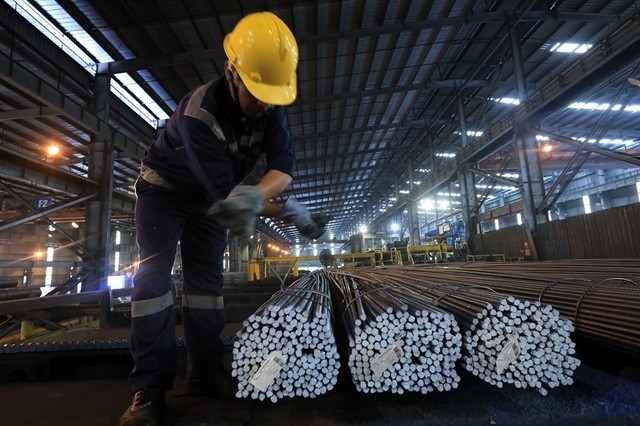Vietnamese Coffee Brings Unique Experience to Consumers in Belgium
 |
| Photo: vietnam.vnanet.vn |
Ronald Clercx said he had just had a trip to Vietnam and loved egg coffee from the first time he tasted it. When he returned to Belgium, he was lucky to find a place selling this interesting coffee, and now egg coffee becomes an indispensable drink in his life.
The place where Ronald Clercx found his favorite egg coffee is Phuong Mai's Pho Sure restaurant. Since opening the restaurant in September 2021, Phuong Mai put on the restaurant menu iced milk coffee and egg coffee made entirely from Vietnamese coffee.
At first, customers were just curious to try it, then they fell in love with this special drink. Maria Eugenia Garcia Sumoza and Ninfa Pitters, originally from Colombia, are such customers. Both of them are addicted to Vietnamese drip coffee because it has a rich, delicious taste, like the coffee in their hometown Colombia.
Chris Geyskens and her husband in Brussels are also Vietnamese coffee enthusiasts. They love Vietnam. Therefore, every year, they visit the S-shaped country to carry out charity projects.
In Belgium, Vietnamese instant coffees such as G7 and Trung Nguyen are sold mainly in Asian stores. Dao Phuong Khang, the owner of Le Panier d'Asie shop in Brussels, said Belgian customers prefer Vietnamese instant coffee because of its ease of use and delicious taste.
The potential of Vietnamese coffee in EU market
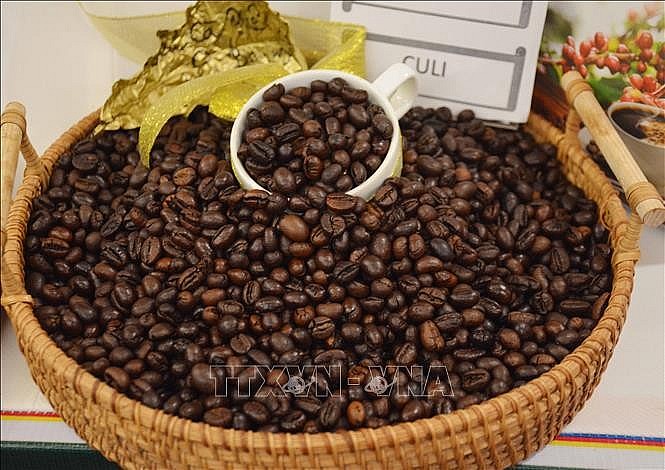 |
| Photo: VNA |
The European Union (EU) is the world's largest coffee importer and consumer market, accounting for 60% of the world's imports and 33% of consumption, respectively. The EU's coffee import turnover reached US$17.4 billion, of which raw coffee was US$8 billion and processed coffee was US$9.4 billion.
The market share of coffee imported from outside the EU is mainly Brazil (28%), Vietnam (18%), and Honduras (6.3%). Countries such as Germany, Switzerland, France, Italy, and the Netherlands are the top EU importers of Vietnamese coffee.
In 2022, Vietnam's coffee export turnover to the EU reached nearly US$1.5 billion, up 42% compared to 2021. Vietnam mainly exports raw coffee, accounting for more than 95% of the total export value of coffee to the EU.
Vietnamese raw coffee is used by European importers to blend with higher-quality Arabica coffee in the production of instant coffee and coffee capsules.
On May 16, the European Commission (EC) approved a regulation banning the import of agricultural products into the EU market including cattle, cocoa, coffee, palm oil, rubber, soybeans, and wood.
The goal of the ban is to limit the consumption and production of certain agricultural products linked to deforestation and forest degradation through rules that control the chain of these products. The regulation was published in the official EU journal on June 9, and will take effect from June 29.
Discussing whether the new EU regulation will affect Vietnam's coffee imports, Tran Van Cong, agricultural counselor of Vietnam in Belgium and the EU, said that Vietnamese coffee businesses and exporters will have 18 months to adapt and adjust to the new EU regulations.
After more than a year from the date of entry into force, the EU will conduct an assessment, classify and publish a list of countries at low risk and high risk related to deforestation and forest degradation.
According to Tran Van Cong, Vietnam has well-controlled deforestation to get land for production, including coffee production. In recent years, this situation disappeared in Vietnam, so Vietnamese products will not fall into the risk group.
Moreover, for manufacturing enterprises, the EU is also divided by large, medium, and small scale to have corresponding inspection frequency. Vietnam's enterprises are mainly small and medium-sized. Therefore, they will have low inspection frequency and the level of requirements is not as high as for large enterprises from other countries.
Meanwhile, according to Isabelle Lemmens, sustainability manager of the European Coffee Federation (ECF), the new EU regulation will affect all coffee-exporting countries. Consignments of coffee imported to Europe must prove that they do not originate from farms built on forested plots that have been cleared since December 25, 2016.
| Vietnam has a lot of potential for coffee as it is the world's second-largest coffee producer and exporter, after Brazil. Vietnam is the world's largest producer and exporter of Robusta coffee. Vietnam ranks third in 4C certification (Common Cod Coffee Community - the organization that implements the Common Code of Conduct for the coffee community), UTZ (a sustainable development program for coffee, cocoa, and tea), and tends to produce high-quality Robusta coffee. Vietnam is also working to increase the proportion of specialty coffee and sustainable landscapes to maintain its position as a reliable large-scale stable coffee supplier to the EU. |
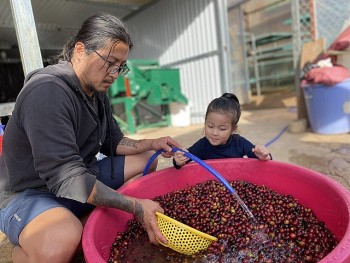 | The Vietnamese Coffee Dream: The Farmers Who Bring Langbiang Coffee To The World At the foot of the Langbiang mountain of Lac Duong town (Lac Duong district, Lam Dong), a group of “global” farmers has brought their Langbiang ... |
 | Bringing the Taste of Vietnamese Coffee to the US Sahra Nguyen (36 years old, US) is introducing more Americans to Vietnam's caffeinated magic. |
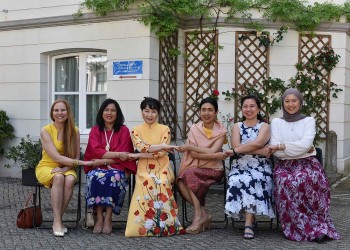 | Vietnamese Cuisine Introduced in Netherlands Spouse of the Vietnamese Ambassador to the Netherlands Le Thi Hien Anh has recently hosted an event named “Coffee Morning” of the ASEAN Ladies Circle ... |
Recommended
 Focus
Focus
Vietnam Leaves Imprints on the World Peacekeeping Map
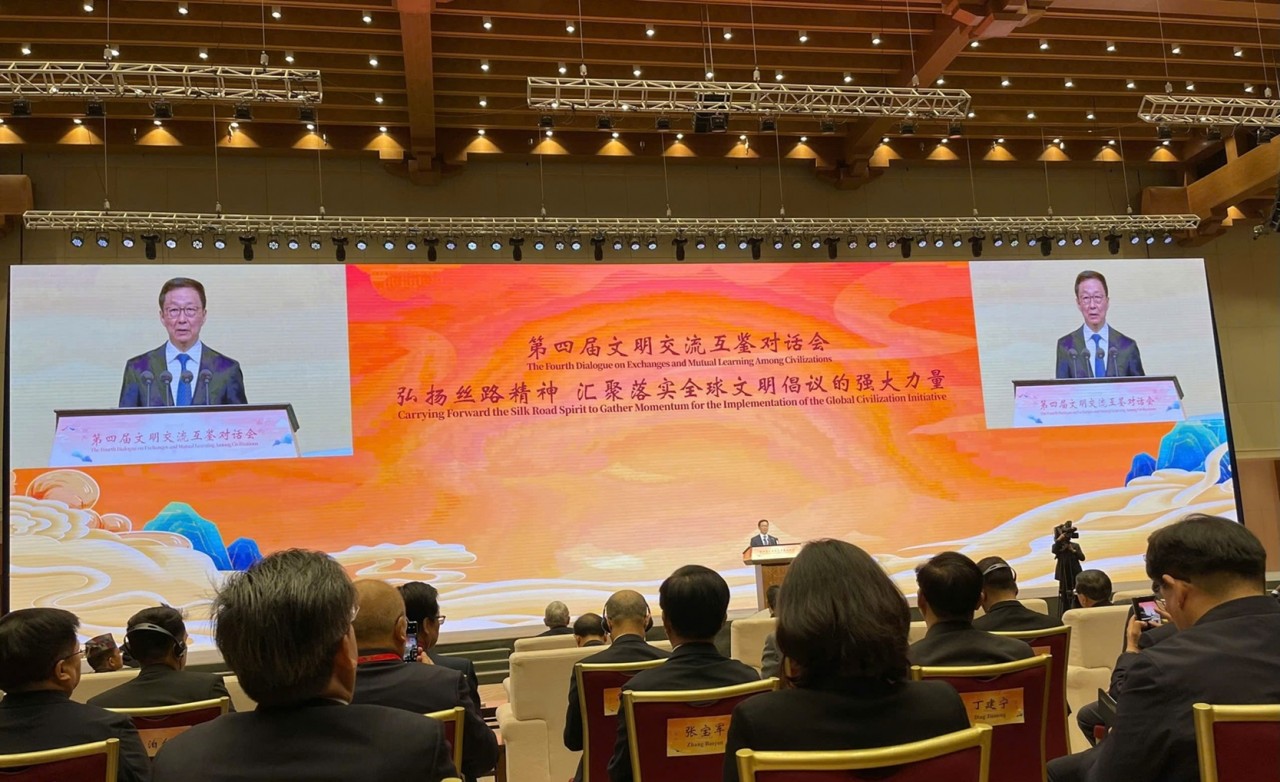 Friendship
Friendship
VUFO Attends Fourth Dialogue on Exchange and Mutual Learning among Civilizations
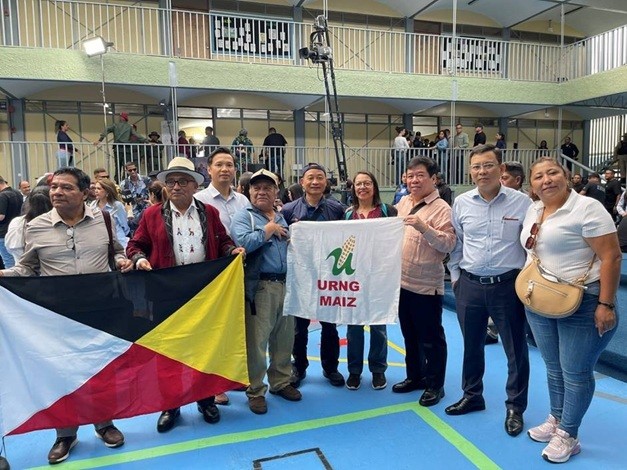 Focus
Focus
Strengthen Solidarity and Friendship Between Vietnam and Venezuela
 Friendship
Friendship
VUFO Supports Initiatives to Enhance People-to-people Exchanges between Vietnam and the Philippines
Popular article
 Focus
Focus
"Vietnamese - Cuban Children, Deep Friendship" Painting Contest Announces Winners
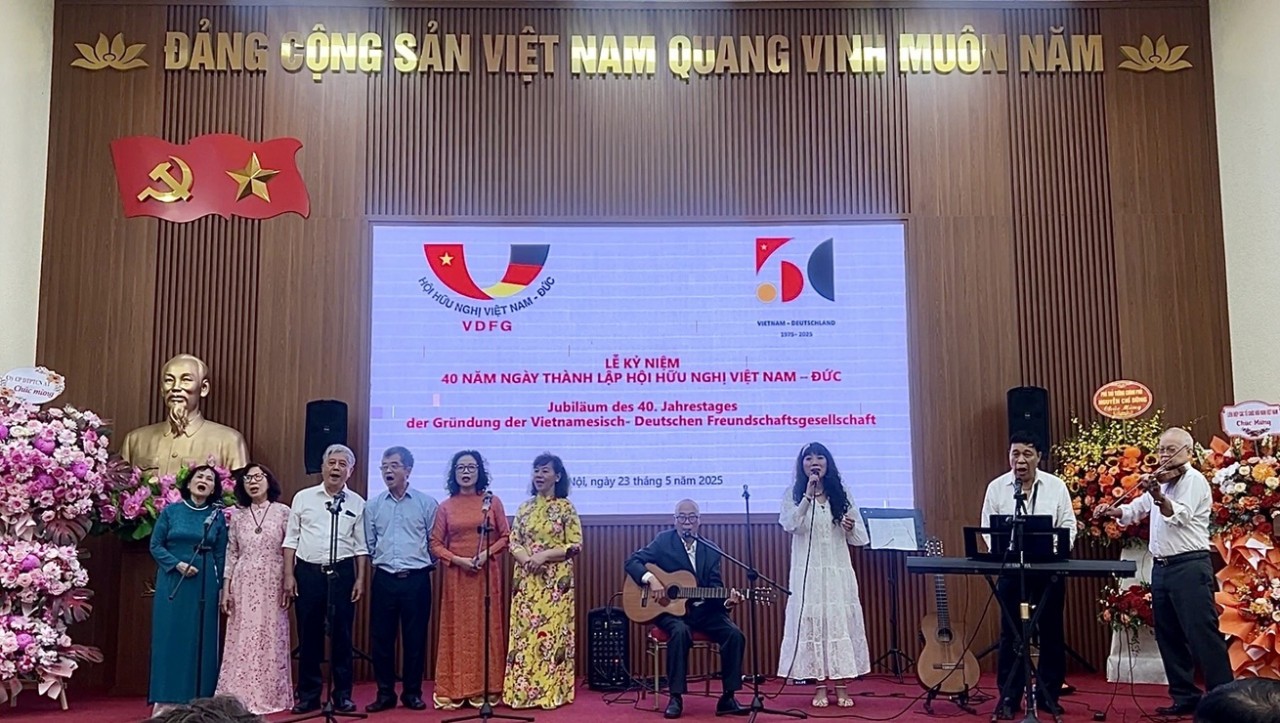 Focus
Focus
Solid Bridge for People-to-people Relations between Vietnam and Germany
 Focus
Focus
35 Years of FES in Vietnam: Fostering Dialogue, Advancing Equity
 Friendship
Friendship







